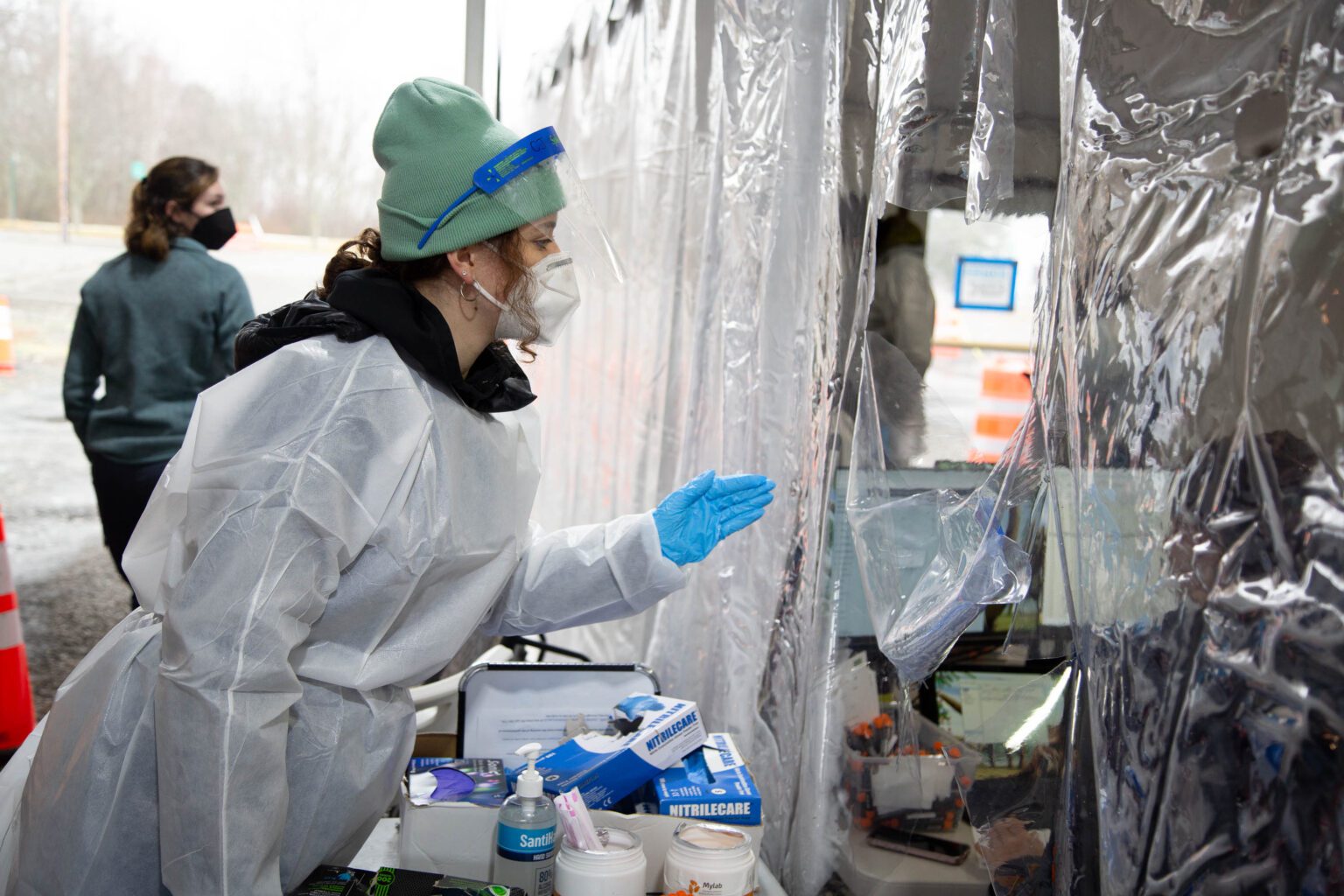Health care is on the ballot, and when it comes to the debate on who, or what, should provide health insurance, only Democratic state House candidate Alex Ramel and Democratic state Senate candidate Sharon Shewmake vocally support single-payer health care.
The other Democratic candidates, including current U.S. Rep. Rick Larsen and state House candidates Alicia Rule and Joe Timmons, support initiatives to make health care more affordable, by capping prescription costs and expanding Medicaid eligibility.
Larsen supports universal health care but does not support a single-payer system. The two, while sometimes used interchangeably, are notably different: a universal system means everyone is covered in some way, whether through private or public providers, whereas a single-payer system means the government pays for medical care.

For Republican candidates like state Senate incumbent Simon Sefzik, the question of single-payer care comes down to cost: How much would taxes have to increase to pay for it?
Legislative District 42 House candidate Tawsha Dykstra Thompson admitted health care is an area she knows little about, but she recognizes the challenge in funding a new system.
“We are one of the most regressive tax states,” Thompson said. “So, if this is what the people want, but they don’t want higher taxes, what are we going to give up and how are we going to accomplish that?”
According to a report from the Committee for a Responsible Federal Budget, a single-payer system could not be funded by a high-income tax alone. The plan would cost the federal government an estimated $28–32 trillion dollars; aggressive tax increases on high-earning individuals and corporations would only raise $11 trillion, or about 40%, of those required funds. Taxes on the middle class would need to go up, according to the 2019 report.

While taxes would increase, research suggests that most U.S. citizens would see overall savings because of minimized or removed medical costs and insurance premiums, according to the Congressional Budget Office.
Whether candidates support a single-payer system, or other government initiatives to reduce costs or health care privatization, each candidate recognizes rising health care costs.
Some candidates, like Republican state House candidate Dan Johnson and Republican congressional candidate Dan Matthews, think the free-market option allows for more competition and lower costs for consumers. The current private-market health care system “has given us the best health care system in the world,” Matthews said in a candidate interview with Cascadia Daily News.
The National Health Expenditure grew to $12,530 per person in 2020, or 19.7% of the U.S. GDP. The average Washington resident paid more than $400 per month for commercial health insurance in 2019. Despite spending more on health care than any other wealthy country, health outcomes in the U.S. are no better than, and sometimes rank worse, than other developed countries, according to the Peter G. Peterson Foundation, a nonprofit tracking the United States’ fiscal challenges.
Health expenditures in Washington state for private health insurance have become increasingly more expensive; those costs have increased by 5.6% per year since 1991, according to the Centers for Medicare and Medicaid Services.

State Senate candidate Shewmake compared her experience giving birth in both the U.K. and the U.S. to contrast how the two systems operate. In the U.K., her appointments with midwives leading up to the birth of her first child were less frequent but more focused, while her care in the U.S. felt unnecessarily frequent, less effective and more expensive.
“In America, we do what you can bill for,” Shewmake said at a candidate forum in August. “Often that’s expensive and it increases the costs of what we pay, especially with our [insurance systems]. In the U.K., they do what is actually effective and good for your health.”
Achieving a universal health care system is a long-term goal, Larsen said, but things can be done in the meantime to make health coverage more affordable.
Recent legislation in Washington state capped the price of insulin at $35 a month, dropping the cap from $100 a month, beginning January 2023. Another bill passed in the 2021 Legislature, the Cascade Care Act, will increase affordable, standardized health coverage options to Washington residents.
“We’re continuing to take steps to get towards universal health care,” Larsen said.

Larsen, who voted to expand Medicaid tax credits to increase Affordable Care Act eligibility and cap out-of-pocket and prescription costs for Medicare members, highlighted the change in uninsured rates in Washington state going from almost 16% in 2010 to slightly more than 6% in 2019.
In Whatcom County, 8.7% of people under the age 65 were uninsured in 2021, an increase from 5.8% in 2018 and slightly higher than the national average.
While Ramel and Shewmake support single-payer health care, both recognize it will not be something realistically implemented without coordinated federal support, and Ramel acknowledges the state is still years out from implementing a system like it.
But in the meantime, Ramel wants to see action.
“Let’s agree on a long-term end goal, but what really matters is what we’re doing in the next six months, the next two years, to move the ball forward and get more people health care,” Ramel said.
This story was clarified to reflect that Sharon Shewmake supports single-payer health care, but believes it will be best implemented at a federal level. While in the U.K., Shewmake could access health care appointments at any time, but she did not need to attend as many doctors’ visits leading up to giving birth as in the U.S. The story was updated to reflect this change at 2:01 p.m. on Oct. 11, 2022.




